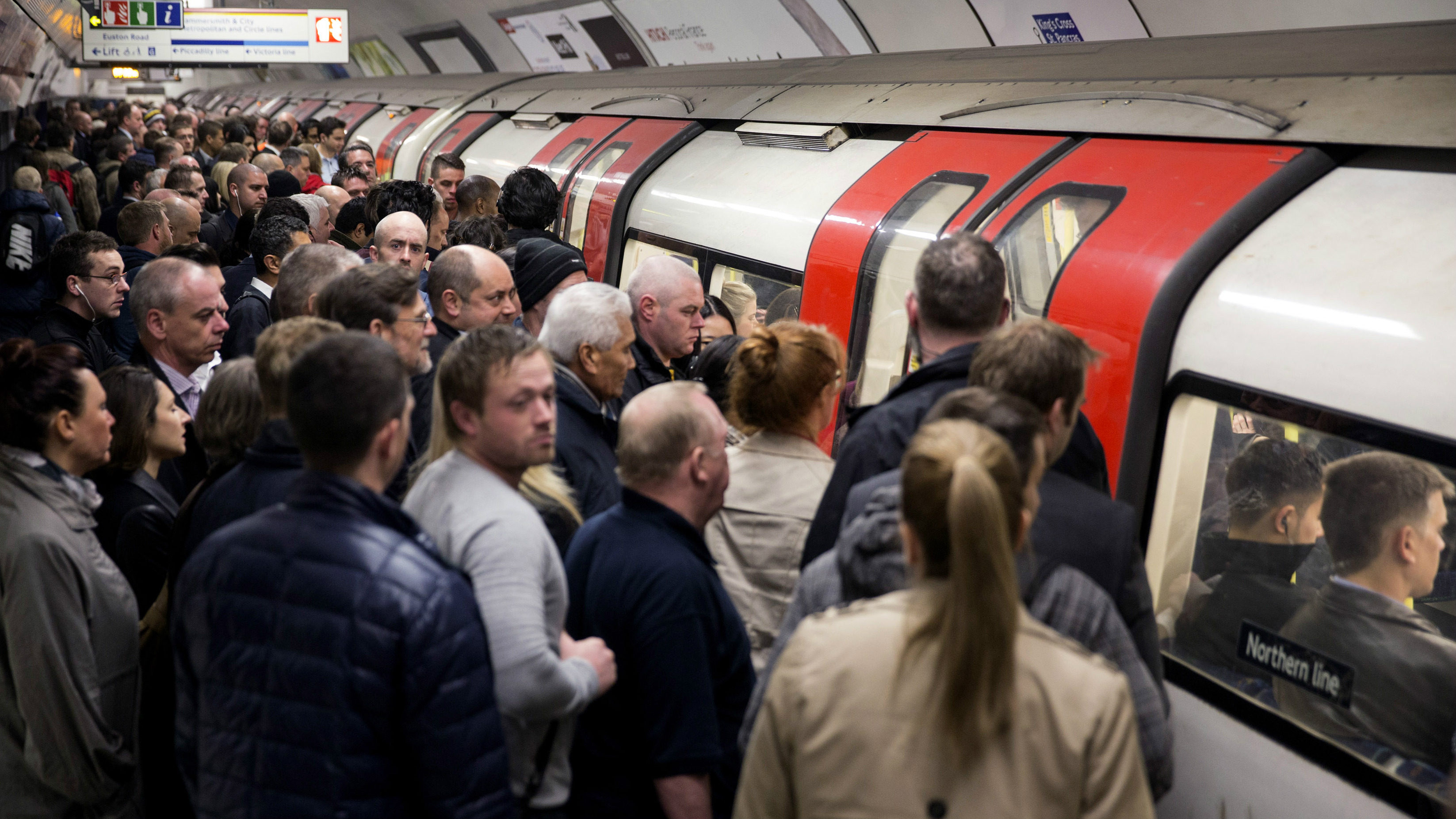Tube commuters face more delays as engineers begin industrial action
RMT union members start work-to-rule over 'unresolved breaches of agreed machineries and agreements'

A free daily email with the biggest news stories of the day – and the best features from TheWeek.com
You are now subscribed
Your newsletter sign-up was successful
Tube strike ballot over ticket office closures
3 October
London Underground employees are to vote on strike action over changes union officials say leave passengers in danger.
The vote is part of a long-running dispute between the RMT union and Tube officials over the closure of manned ticket offices on the network.
The Week
Escape your echo chamber. Get the facts behind the news, plus analysis from multiple perspectives.

Sign up for The Week's Free Newsletters
From our morning news briefing to a weekly Good News Newsletter, get the best of The Week delivered directly to your inbox.
From our morning news briefing to a weekly Good News Newsletter, get the best of The Week delivered directly to your inbox.
RMT says the reliance on ticket machines and the subsequent loss of around 900 station-based roles while passenger numbers continue to climb is a threat to customer safety.
General secretary Mick Cash said removing station staff "compromised safety and customer service" and called for the policy to be reversed.
"London Underground says it aspires to be a world class service," he said. "RMT says that a self-service railway that can't staff its control rooms to monitor fire alarms, lift alarms and passenger help points would struggle in league two, let alone be considered world class."
London Underground chief operating officer Steve Griffiths said there were now more staff in public areas and that crime on the network has reached an all-time low.
A free daily email with the biggest news stories of the day – and the best features from TheWeek.com
A strike would be the first such industrial action by Tube workers since Sadiq Khan became London mayor in May. During campaigning, he promised he would ensure "zero days of strikes" if elected.
Khan has launched a six-week review into the former mayor Boris Johnson's decision to close manned ticket offices in Tube stations, while an independent watchdog is due to report back at the end of the month on the impact of the closures.
However, the London Evening Standard reports that "Labour insiders claimed during the mayoral election that Mr Khan had no plans to reverse the closures", which experts believe would be an expensive measure at a time when Transport for London's budget is already under pressure.
Night Tube: Everything you need to know
16 August
London is about to join a select group of global cities offering all-night underground travel with the launch of the Night Tube. Here's what to expect.
When does the Night Tube start?
First services will launch on the Central and Victoria lines on 19 August and will be available on Fridays and Saturdays. Services on the Jubilee, Northern and Piccadilly lines will follow later this year.
How frequent will trains be?
Trains will run on average every ten minutes on the Victoria line and on the Central line between White City and Leytonstone, with that service becoming 20 minutes between Ealing Broadway to White City and Leytonstone to Loughton/Hainault.
Will it be safe?
All stations will be staffed by "visible and available" employees while the trains are running, Transport for London (TfL) says. In addition, there will be about 100 British Transport Police officers patrolling the 144 stations.
TfL says it is working hard to ensure the Tube network "remains a safe, low crime environment" during the night. However, police have identified 12 stations - Camden Town, London Bridge, North Greenwich, Vauxhall, Brixton, Waterloo, Oxford Circus, Leicester Square, Piccadilly Circus, Charing Cross, Victoria and Hammersmith - at risk of increased crime and anti-social behaviour.
There are also concerns about passengers having to walk through "muggers' alleys" at outlying stations.
How much will it cost?
Standard off-peak fares will apply and Day Travelcards will be valid for journeys starting before 04:30 on the day following the issue date.
Why has it taken so long?
The Night Tube was originally announced in September 2014 by Boris Johnson, when he was London mayor, and had been due to start on 12 September 2015. However, a dispute between unions and London Underground chiefs over staff pay and conditions delayed plans.
A dummy run for the new service took place last weekend, with staff tested on their ability to evacuate stations and even deal with passengers being sick.
What are the benefits?
According to TfL, the Night Tube will boost jobs and maintain London's status as a vibrant and exciting place, while the Mayor of London's website claims it will boost the local economy by £360m over the next 30 years, as well as support jobs.
It should also help cut night-time journeys by an average of 20 minutes.
How does it compare with other cities?
All-night subway services are a rarity. New York and Copenhagen offer trains throughout the night, while Berlin replaces its trains with buses between 1am - 4am on weekdays. New York has offered a 24-hour subway service since 1904.